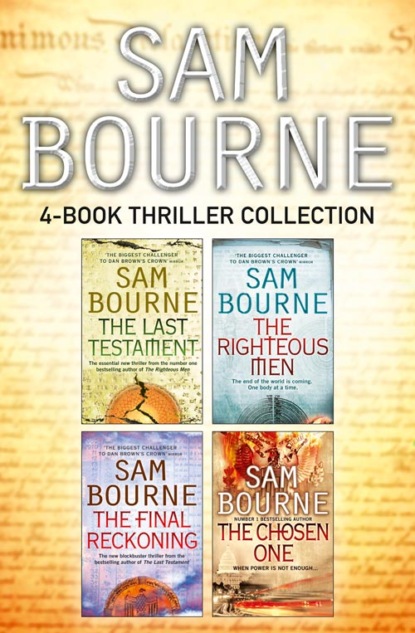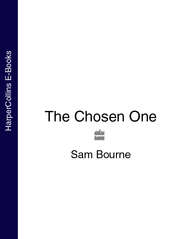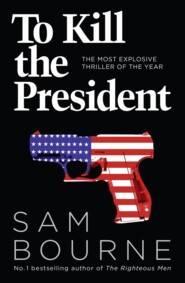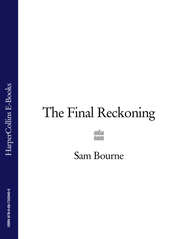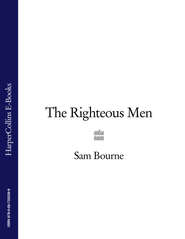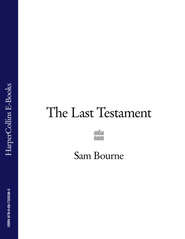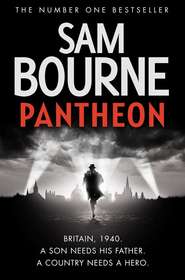По всем вопросам обращайтесь на: info@litportal.ru
(©) 2003-2024.
✖
Sam Bourne 4-Book Thriller Collection
Автор
Год написания книги
2018
Настройки чтения
Размер шрифта
Высота строк
Поля
‘Well, I knew they always carry spares. And I just happened to be glancing into one of his jacket pockets. Here, put it on.’
As if in a ceremony, TC stretched onto tiptoes and placed the yarmulke onto Will’s head. She dashed into the bathroom and came back with a hairclip. ‘There,’ she said, attaching it just so. ‘Reb William Monroe, it’s a pleasure to meet you.’
Once in the cab, Will felt himself begin to twitch with excitement – and nerves. He had never so much as attempted an undercover assignment and that’s what this had become. He was in costume, trying to pass himself off as somebody else. His protective armour – chinos, blue shirt, notebook – was gone. He felt exposed.
In a bid for reassurance, he reached for his cell phone – a memento of his regular life. A new message, apparently from the same unknown sender he had once thought was Yosef Yitzhok.
Just men we are, our number few
Describable in digits two
We’re halved if these do multiply
If we few perish then all must die.
He had no idea what it meant but it hardly mattered now. According to TC, everything was about to be explained. Habit made him check his BlackBerry next. The red light was blinking: a Guardian News Alert. Nostalgia had made him an electronic subscriber to the paper he used to read back home. Ordinarily, he rapidly deleted these email updates: he had enough to do keeping up with the news in New York and America. But that ‘alert’ did the trick: what breaking news might justify its own bulletin? He clicked it open.
The Robin Hood of Downing Street
Britain’s hottest political scandal in decades took its most bizarre turn yet today.
The former Chancellor of the Exchequer, Gavin Curtis, who police believe took his own life last week, seems set to be transformed overnight from a disgraced hate figure into a posthumous folk hero. Treasury officials, who earlier revealed that Mr Curtis had diverted large chunks of the UK’s budget into a private Swiss bank account, have this morning disclosed where that money ended up – in the hands of the world’s poorest people.
Instantly hailed by the tabloids as a ‘real-life Robin Hood’, it seems Mr Curtis spent much of his seven years at Britain’s exchequer robbing from the rich to give to the poor.
‘Our government grant doubled, then tripled under Mr Curtis,’ said Rebecca Morris, a spokeswoman for Action on Hunger, a leading relief agency. ‘We thought it was just government policy.’
It was nothing of the kind. Instead such generosity to those fighting the wars on poverty, HIV/Aids and famine was the personal decision of Mr Curtis himself – made possible by taking money out of dormant bank accounts that had laid unnoticed and unclaimed for years and then burying the details in a bafflingly complex labyrinth of Treasury data.
Some observers speculate that the Chancellor went further in recent months, finding extra funds by raiding subsidies earmarked for Britain’s arms exporters. ‘They got less so that the starving of Africa and the sick of the Indian Ocean could get more,’ explained a ministerial ally last night. One report suggested it was this move which led to his eventual exposure.
‘He must have known the risks he was taking,’ Ms Morris told the Guardian. ‘And yet he was prepared to do all that, just so the hungriest and weakest would have a better chance. I can’t tell you how many lives Gavin Curtis must have saved. Some will call this a scandal, but I think this was the action of a truly righteous man.’
FORTY-FOUR (#ulink_bf031670-a78b-5f81-bc41-4b342d298d2a)
Sunday, 8.16pm, Crown Heights, Brooklyn
TC did not want to take the risk of a phone call. She feared that Rabbi Mandelbaum would be too shaken by the sound of a voice from his past. She feared, too, that he would instantly call her parents. It was likely he had been plagued by guilt during these long years: he had colluded in a secret with young Tova Chaya and look what had happened. He was bound to blame himself, for encouraging her rebelliousness when he should have curbed it. All this she imagined.
So she would turn up at his front door instead, leaving him no option. She looked at her watch: with any luck he would be back from synagogue by now. She remembered the address and, once she saw that the lights were on inside, she told the cab to wait. ‘Sorry, Will. I just need a second.’ She was staring out of the window, as if unable to move. ‘It’s been nearly ten years. I was a different person.’
‘You take your time.’
Will stared out of the window, at streets that were preternaturally quiet. Theirs was the only car; no one was out walking. The only sound came from the radio, playing a song. Will did not notice it at first, but one line of the lyric caught him. It was John Lennon, declaring that ‘God is a concept, by which we measure our pain.’ Will listened harder; the song was moving towards its climax. ‘I don’t believe in magic . . . I don’t believe in bible . . . I don’t believe in Jesus . . . I don’t believe in Beatles. I just believe in me, Yoko and me, and that’s reality.’
He had never heard it before, but it made his throat dry. It was as if Beth herself were speaking to him, as if she had, at last, smuggled a message out of her cell. The yearning that Will felt for his wife at that moment was so great, it was as if he was made of nothing else.
Finally, TC gave the signal to get out of the car. They paid the driver and walked towards the house. Will adjusted his skullcap. Again. TC knocked on the door. It took a while, but Will could hear activity. A slow shuffle to the door and then a hunched, grey-bearded old man. He could have been no younger than eighty.
‘Rabbi Mandelbaum, it’s Tova Chaya Lieberman. Your pupil. I’ve come back.’
The eyes spoke first, brightening and moistening in an instant. He looked and looked, without uttering a word. Then he nodded gently and waved them in. He walked ahead of them, allowing his left arm to lift up as he passed the door to the dining room: his way of saying, Go in there. He carried on in the direction of the kitchen.
Will was hit immediately by the smell of old books: the room was crammed from floor to ceiling with the leather-bound, gilt-edged volumes he had seen in the interrogation room on Friday night. Holy texts. The surface of the dining-room table was invisible: covered first by a tablecloth, then a plastic sheet and finally dozens of open books. It was hard to see; the room was lit by one weak electric light. But even with a cursory scan, Will could tell: barely a word was in English.
There were no paintings on the wall, only photographs. Perhaps a dozen of them, maybe more, all displaying a single subject. The Rebbe. Dead more than two years, he stared out from every angle, sometimes smiling, sometimes with an arm aloft, but always gazing intently. In one photograph the Rebbe stood with Rabbi Mandelbaum in a group. The others seemed to be commercially produced, specially mounted on tacky, log-style slices of fake wood. It reminded Will of the souvenirs you could buy in small Italian villages, depicting the local saint.
Rabbi Mandelbaum was back, holding an unsteady tray with a single glass of water.
‘Sit, sit,’ he insisted, as he offered the tray to Will. He was puzzled. Why was he the only one to have anything to drink? TC leaned over and whispered: ‘Yom Kippur has already begun. This evening. No food or drink.’
‘So why has he given me water?’
‘He’s a smart guy.’
TC had positioned herself facing her old teacher.
‘Mrs Mandelbaum?’ she said in a voice at once hesitant and gentle.
‘Haya Hindel Rachel, aleyha hosholom.’
‘I’m sorry. HaMakom y’nachem oscha b’soch sh’ar aveilei Tzion v’Yerushalayim.’ May the Lord comfort you amongst all those who are mourning for Zion and Jerusalem.
Will could only watch and listen, but he knew enough body language to know TC was giving condolences.
‘Rabbi Mandelbaum, I’ve come here after all these years on a matter of life and death. I believe there is a sakono fur die gantseh breeye.’ A risk to the whole of creation. She paused, before remembering herself.
‘This is my friend, William Monroe.’ The rabbi made the slightest movement with his eyebrow, a tiny reflex that said, ‘Don’t think I’m naïve young lady. I understand the ways of the world. I understand that a man named William Monroe is not a Jew, no matter how he is dressed. And I also understand that a word like “friend” has multiple meanings.’
‘His wife has been kidnapped. She is held hostage, here in Crown Heights. Will has spoken to a rabbi – I believe it must be Rabbi Freilich.’ She glanced over at Will, who was glaring at her in surprise: Why didn’t you tell me you knew his name? She carried on. ‘He doesn’t deny that he has taken her. But he has never explained why.’ No shock registered on Mandelbaum’s face. He just nodded, encouraging TC to continue.
‘We have been getting various messages, delivered by telephone. Text messages.’ She enunciated the phrase, as if it might be unfamiliar to the aged rabbi. But he did not seem fazed by it.
‘We do not know who these messages are from. But they do seem to indicate some kind of explanation for events here and beyond. I can’t be sure what they mean. But I have an idea. Which is why we’re here.’
‘Fregt mich a shale.’ Ask your question.
‘Rabbi Mandelbaum, will you explain to Will the idea of a tzaddik.’
For the first time, the rabbi conveyed an emotion. He looked quizzically at TC, as if wondering what he was about to get into.
‘Tova Chaya, you know well what is a tzaddik. This much we learned together already. For this you came back?’
‘I want him to hear it from you. Will you tell him?’
The rabbi stared hard at TC, as if trying to work out her motives. Finally and hesitantly, he turned to Will and began. ‘Mr Monroe, a tzaddik is a righteous man. The root of the word is tzedek, which is justice. A tzaddik is not just wise or learned. For that we have different words. A tzaddik is a man of special wisdom. He embodies justice itself. The English word “righteous” is the closest you have.’
William had never heard a voice like it. The rabbi who had interrogated him so forcefully – whom he now discovered was called Freilich – had spoken with an unusual intonation, a musical lilt that bobbed up and down. But it was still a recognizably American accent. This was something else. Not German, not Eastern European exactly, perhaps a blend of the two. Was it the accent of Mittel Europa? Or was it, in fact, the voice of a place that no longer existed – the voice of Jewish Europe? In that sound, Will could recognize the pictures he had studied in history books of the second world war: the Jews of Poland or Hungary or Russia, their dark eyes staring out of black-and-white photographs, on the brink of a terrible fate they did not know. He heard the sorrowful, wry violins of the klezmer music he had occasionally caught on New York radio. In this one man’s voice, Will Monroe imagined he could hear a lost civilization.





